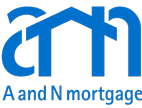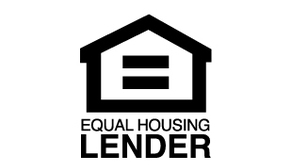You’re thinking about buying a home and it’s an exciting time. But there are many facets of the process to consider and some of them need to be considered well in advance of applying for a loan. The 10 questions below are some of the most common things to ask about on your path to becoming a homeowner.
1) My Credit Score Isn’t Great, Can I Still Get Approved?
One of the first things a lender will do is check your credit score, so be sure to pay down as many of your debts as you can ahead of time. It’s important to let your lender know of a low score and the reason for it because there are some types of loans, such as an FHA mortgage loan, that will accept borrowers with low scores because the loan is backed by the federal government. If your score is low because of errors or problems that no longer exist such as identity theft, be prepared to explain and back it up with financial history.
2) If I’m a First-Time Homebuyer, How Much Do I Need to Pay as Down Payment?
Typically you need to put down 20%. However, borrowers who qualify for a VA or FHA loan may pay as little as 3.5%. Although, if you can afford it, you should pay the 20% as it’s possible to get better terms on the loan by doing so.
3) Can I Use Gifted Money for My Down Payment?
Conventional loans will allow up to the full 20% down payment as gift from a family member. But keep in mind that lenders will usually be looking at your banking information to see that any money being used for the down payment is “seasoned” – meaning they don’t want to see that the money suddenly appeared in your account 30 days before applying. If the down payment is gifted, it’s best to tell your lender up front and they may ask for a signed letter from the giver saying that they don’t expect repayment.
4) What Documents Will I Be Asked to Provide?
Typically you’ll need to show two years’ worth of tax returns, two to three months of consecutive pay stubs, and some lenders may ask to see two to three months of bank statements for your accounts. Collect the list of things the lender requests as quickly as possible to speed up the approval process.
5) What Is PMI and Do I Have to Pay It?
PMI stands for Private Mortgage Insurance. It is typically required when you pay less than 20% down or you have poor credit.
6) Is My Mortgage a Fixed-Rate or Adjustable-Rate?
It’s important to know this up front because if the interest rate on your loan is variable, your monthly payments could go up if interest rates rise down the road. However, if the rate is fixed and the interest rate is high at the time of your loan, future falling interest rates won’t benefit you. Ask your lender what type of loan would best benefit your situation.
7) Are Property Taxes Included in My Monthly Mortgage?
Most often, property tax is spread over 12 months and charged at the same time as your mortgage payment, but not always. This is something to take into account when trying figure out what your actual monthly payment will be. Your lender can tell you if it’s included and give you an estimate of what the total will be.
8) What Are Discount and Origination Points?
Both are a kind of fee that is a percentage of your loan. Origination points refer to fees associated with processing the loan whereas discount points can be paid in order to lower the interest rate.
9) What Are the Closing Costs?
Closing is exciting because it means you are nearing the end of a long journey. Ask your lender to provide a breakdown of the following closing costs:
- A survey fee to verify property boundaries
- A flood certification fee to ensure the property is not in a flood zone
- The title search fee to ensure there are no legal claims on it
- Title insurance
- Attorney costs for closing the loan
- Recording and transfer costs
- Loan preparation fees
- Discount points to get a lower interest rate
- Escrow accounts, including private mortgage insurance (PMI), homeowner’s insurance, property taxes, and possibly interest
10) Is There a Penalty If I Prepay My Loan?
It varies by loan, but there can be penalties for prepaying or for refinancing. If you think you will be in a position where you can pay down your loan faster than required, it may be in your interest to ask for a penalty-free loan. Alternatively, you may be able to lock in a lower rate with the lender if you agree to a penalty-fee type loan, which won’t be a problem as long as you pay the regularly scheduled payment amounts.
For help in navigating the complexities of these questions and more, seek out an experienced mortgage lender consultant like the ones at A and N Mortgage and see if you qualify for your dream home loan today. Call 773-305-LOAN for a free quote.







